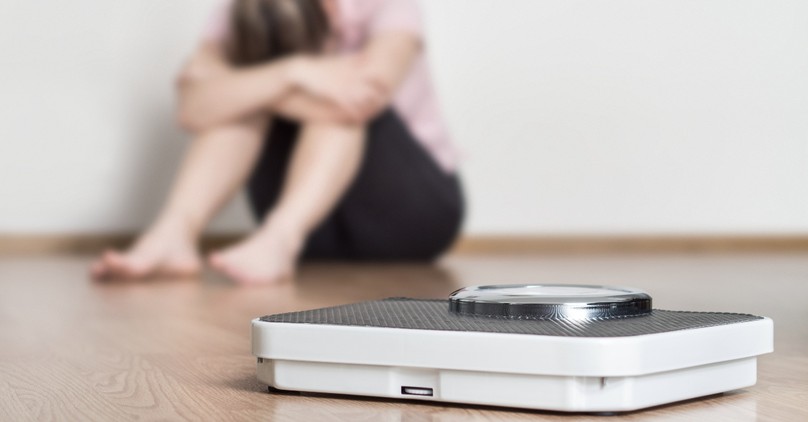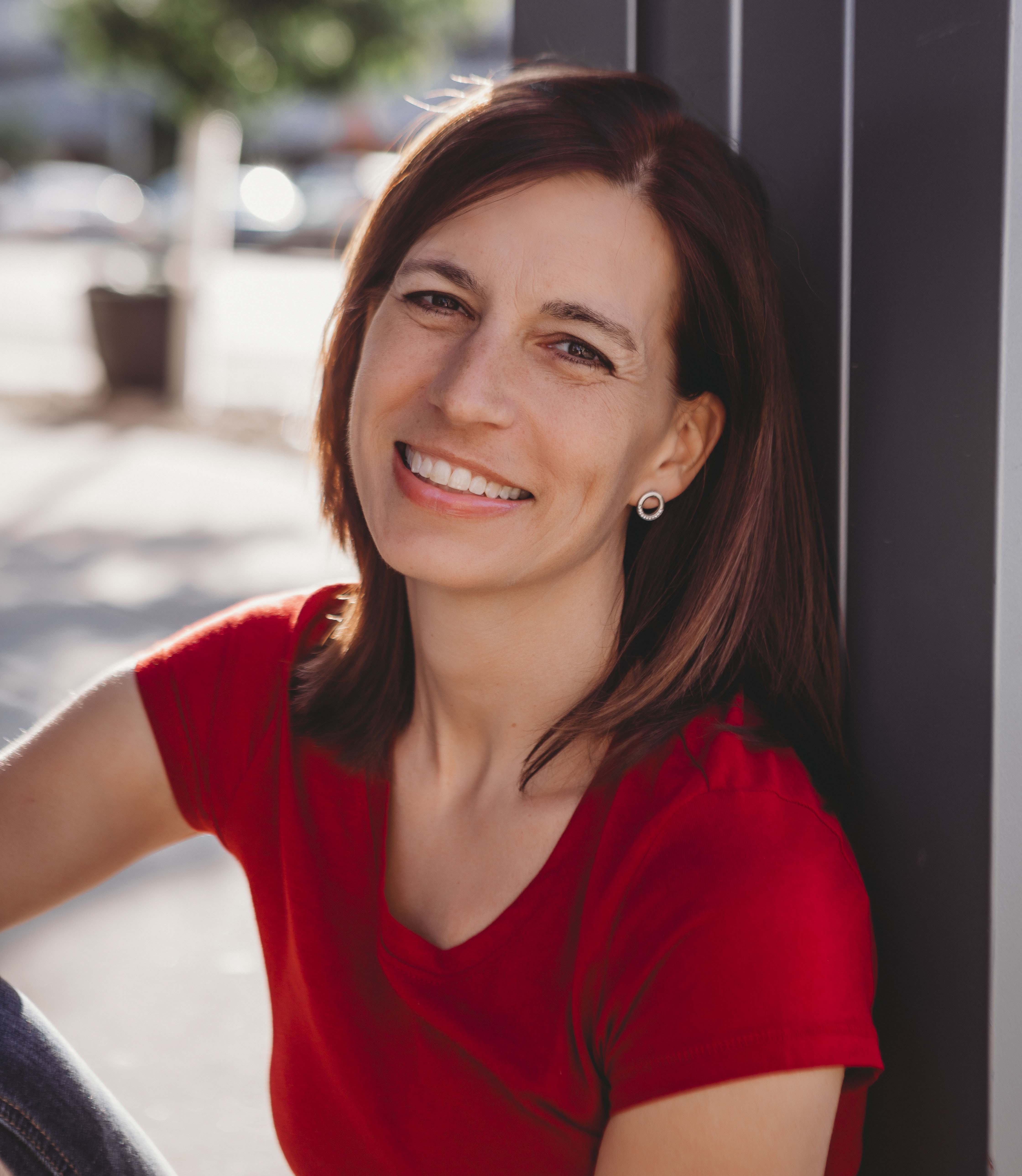
The vomiting was quite unexpected.
I’d put off looking at my body for a week. My hubby helped me by taping a piece of paper over our bathroom mirror so I wouldn’t see something I wasn’t ready to see.
But the paper couldn’t stay there forever. I knew I had to come face-to-face with my new body at some point. And the day I did, I looked from my reflection in the mirror to Corey’s behind me and said, “I think I’m gonna throw up.”
The amazingly supportive husband he is, he reassured me that I was beautiful and that it would all be okay. Then he held my hair out of my face as I leaned over the toilet and threw up. That was my first experience seeing my chest after a double mastectomy removed my breasts.
Not every woman who undergoes that incredibly invasive surgery has the same reaction as me, but we all have to learn to love our newly broken bodies.
I found myself struggling daily with my thinking and emotions. The teeter-tottering thoughts of ‘Your body is ugly’ and ‘Shut up and just be thankful you don’t have cancer’ drove me mad. I was and am thankful that the cancer is gone, but I couldn’t shake the sadness of losing a piece of me and the feeling of being less than others.
It was such a frustrating time. People grieve when a person dies. They don’t grieve when surgeons, through the wonders of modern medicine, remove cancer from their bodies. Or do they?
I struggled with this for a long time. Even now, six years later, though I am comfortable in my post-cancer body, I still find myself overcome with sadness when I catch a glimpse of my scars in the mirror. But I have learned that sadness is okay.
Several years ago, I read a book called Wednesdays Were Pretty Normal. In it, Michael Kelley tells the story of walking through childhood cancer with his young son. One quote within the pages of that book grabbed a hold of me and became a turning point in my struggle. It says, “We often think about the grieving process exclusively in terms of people. You lose someone close to you, and you lament that loss in personal and profound ways. But the same process happens, I believe, to other areas of life too. . .In the end, grieving is about loss and finding your way through life without the thing that’s not there anymore.”
That grief is exactly what I was fighting against. Kelly has no idea that he permitted me to grieve my breasts, but that is what happened that day. I decided it was okay and necessary for me to grieve.
You probably haven’t lost your breasts, and I hope that is never a part of your story, but likely you’ve lost something else of value. Maybe a c-section scar and stretched skin are your struggles. Maybe it’s wrinkles and gray hair. Maybe it’s psoriasis or adult acne, or alopecia. It can be a myriad of things. And maybe, like me, the voices in your head are telling you, ‘Just get over it. It’s not that bad. Grieving such a small thing is selfish.’
Grief is Good
But grieving is not selfish. It is often a necessary road to travel to make it to a place of a healthy self-image.
I believe the point at which we decide there is a certain amount of value to our physical bodies is the point at which we can allow ourselves to grieve that which is lost.
We are each on our own journey and will walk through grief and acceptance of our changed bodies in different ways, but I hope the following paragraphs on how I worked through this will help you to reconcile any warring thoughts in your mind and come to a healthy place of acceptance of your body.
Culture – The Lie of Beauty
I first considered the culture we live in. I’ve known from a young age that our society places high value on the feminine form. It screams to us from billboards and movies, and social media that physical beauty is the end goal. Perfection is the objective. And being just as immersed in this society as everyone else is, I am not immune to striving for that. I color my hair every four weeks because I’m just not ready to be gray. And I’m embarrassed enough by my big toe that is missing a nail that I often put a band-aid over it when I’m out in sandals in the summer.
I can easily fall into the trap of looking to society for my standard of beauty, but there is one thing I know for certain about our culture. It lies a lot. We are shaped by the advertising of corporations and businesses whose end goal is not our self-esteem. Their goal is to sell us something and to do so, they have to make us dissatisfied with what we have.
So I concluded that I couldn’t trust the beauty myth our culture is peddling.
Nature – The Silent Beauty
But nature does not lie. And it was one of the things that sold me on the appropriateness of grieving my breasts. Our natural world speaks the truth of physical beauty without saying a word. The oceans and the mountains draw hundreds of thousands of tourists yearly because they are beautiful. Without saying a single word, the natural world speaks loudly the truth that there is beauty in physical things. And if we can find the God-created natural world to be breathtakingly beautiful, there is beauty in the human form, which he created in his own image.
Scripture – The Truth of Beauty
We can even find references to physical beauty in scripture. Back in Genesis, when God created everything that makes up our world, he called everything good. But when he creates the human form, he calls it “very good.” In addition, Song of Solomon is filled with references to the beauty of the human body, though some of the metaphors are quite odd. (I’m pretty sure I wouldn’t appreciate my hubby comparing my breasts to the twin fawns of a gazelle.)
But it’s important to weigh the references to the external in scripture to the references to the internal.
One example of external and internal beauty comes in the book of Esther. Esther came to her position as queen because she was physically beautiful. She beat out hundreds of other maidens for the king’s attention. Certainly, then, there is value in the physical. But it’s what she did with her most beautiful position. It was her inward beauty, her character, and her willingness to do a hard thing that ultimately allowed her to be used by God to save her nation from a massacre.
Another example of this balance is in Proverbs 31. The Proverbs 31 woman is a picture of perfection. Much is made of her wisdom, humility, compassion, business skills, and ability to care for her family. All things of character, not of the physical. But buried in that chunk of scripture is a verse that says, “Beauty is fleeting, but a woman who fears the Lord is to be praised.” That verse tucked into that chapter provides a good perspective check for me. Yes, beauty exists and is valuable enough to be mentioned multiple times in scripture, but it is fleeting. It’s important to weigh the value of internal and external beauty on a fair scale.
So I have concluded that our physical bodies do have value. We were created in the image of God, for goodness' sake. But he is much more concerned with what’s on the inside than on the outside.
I encourage you, reader, to consider the body image struggle that you have. Allow your external appearance to carry enough weight that you can find it acceptable and valuable to grieve what is lost, but on the flip side, focus on the internal. Grieve your loss, but work to develop a character that trusts God loves our inside far more than our outside.
It’s been several years since my first glance at my surgically changed chest. Do I still miss what used to be? Sometimes, yes. But the physical loss doesn’t compare to the character God has developed in me through it.
Photo Credit: ©Getty Images/Tero Vesalainen



